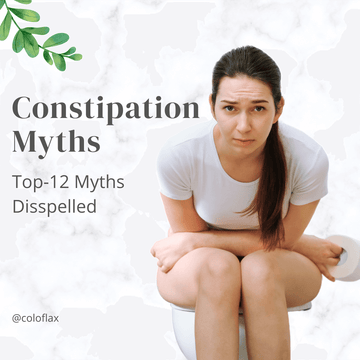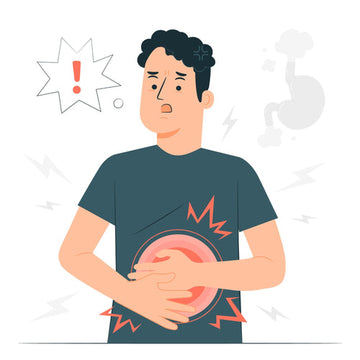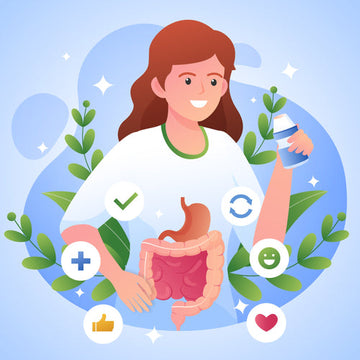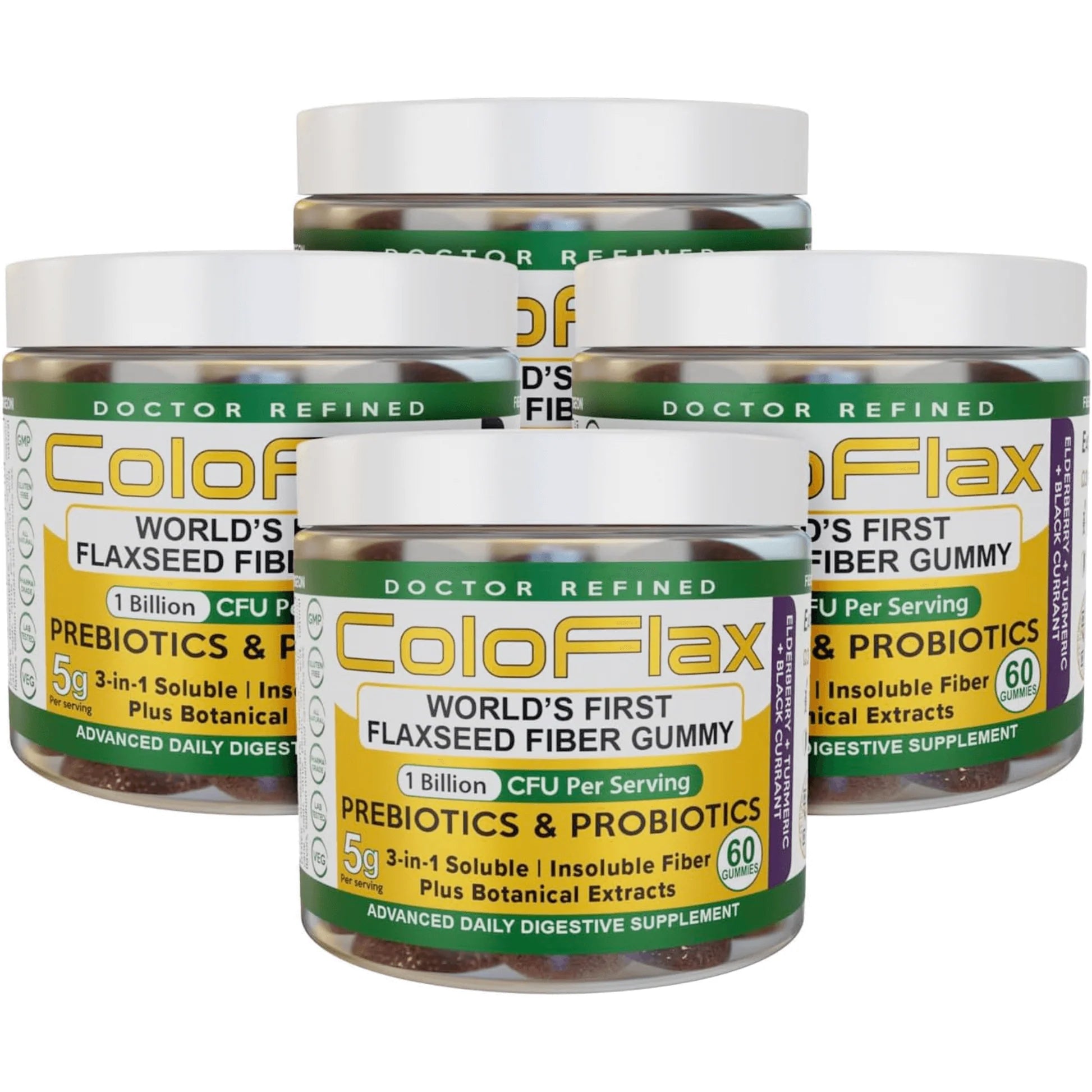Constipation is something that we’ve all struggled with at some point in our lives. For some of you, it’ll be an occasional thing that disrupts the odd vacation or creeps up on you when you’re stressed and just not yourself. For others, it’s a chronic issue caused by illness, medication, age, or lifestyle choices.
But despite its frequency, there’s still a lot that people don’t know about constipation, as well as many myths that only serve to cloud that knowledge. In the following guide, we’ll highlight some of the biggest myths about constipation, many of which you may believe yourself.
Constipation Myth 1: You’re Constipated if you Don’t Have a Bowel Movement Every Day

Constipation is largely defined by irregularity, as well as factors like stool consistency. If you typically have one or more bowel movements a day and suddenly find that you’re having one every three days, and that single movement is much dryer and harder than usual, it could be constipation.
But if you typically have one bowel movement every few days, nothing has changed and so you’re just as “regular” as you always were.
Not everyone has a bowel movement every day. The healthy range is anywhere from three per day to three per week. Focus less on what’s normal for everyone else and more on what’s normal for you.
Constipation Myth 2: Fiber Always Fixes Constipation

As noted in our guide to the causes of constipation, the average American’s diet is very low in fiber and this is a leading contributor to constipation and other digestive issues. Adding more fiber to your diet can usually improve your digestive health, and if you suffer from regular bouts of constipation, you may experience some relief.
But not always.
For instance, many medications are known to cause constipation, including opioids. A sedentary lifestyle is also a leading cause. If you’re taking large quantities of painkillers and spending a lot of time sitting around, even fiber might not help you.
You should definitely try to meet your Daily Value of fiber, but you’ll also need to drink more water and try to move around. If it’s still causing you problems, speak with your physician and enquire about laxatives.
Constipation Myth 3: All Laxatives Take Effect Immediately

Nearly every high school/college comedy from the 1980s or ‘90s contains a scene where someone’s drink or food is spiked with laxatives. Mere seconds after the laxatives are swallowed, their guts start to grumble, their face turns white, and their expression changes from one of smug superiority to sheer terror.
Within a couple of minutes, they’re in the bathroom making ungodly noises.
In the real world, laxatives rarely work that quickly and the effects are rarely that catastrophic.
Laxatives like Ex-Lax contain sennosides, which usually take effect in between 6 and 12 hours and tend to produce gentle and almost natural results. Bisacodyl can be a little more forceful, but again, it doesn’t take effect immediately and usually needs several hours.
There are laxatives that produce more immediate results, but most of the ones you’ll find in your local pharmacy are designed to be taken in the evening so you can have a bowel movement in the morning.
Constipation Myth 4: All Fiber is the Same
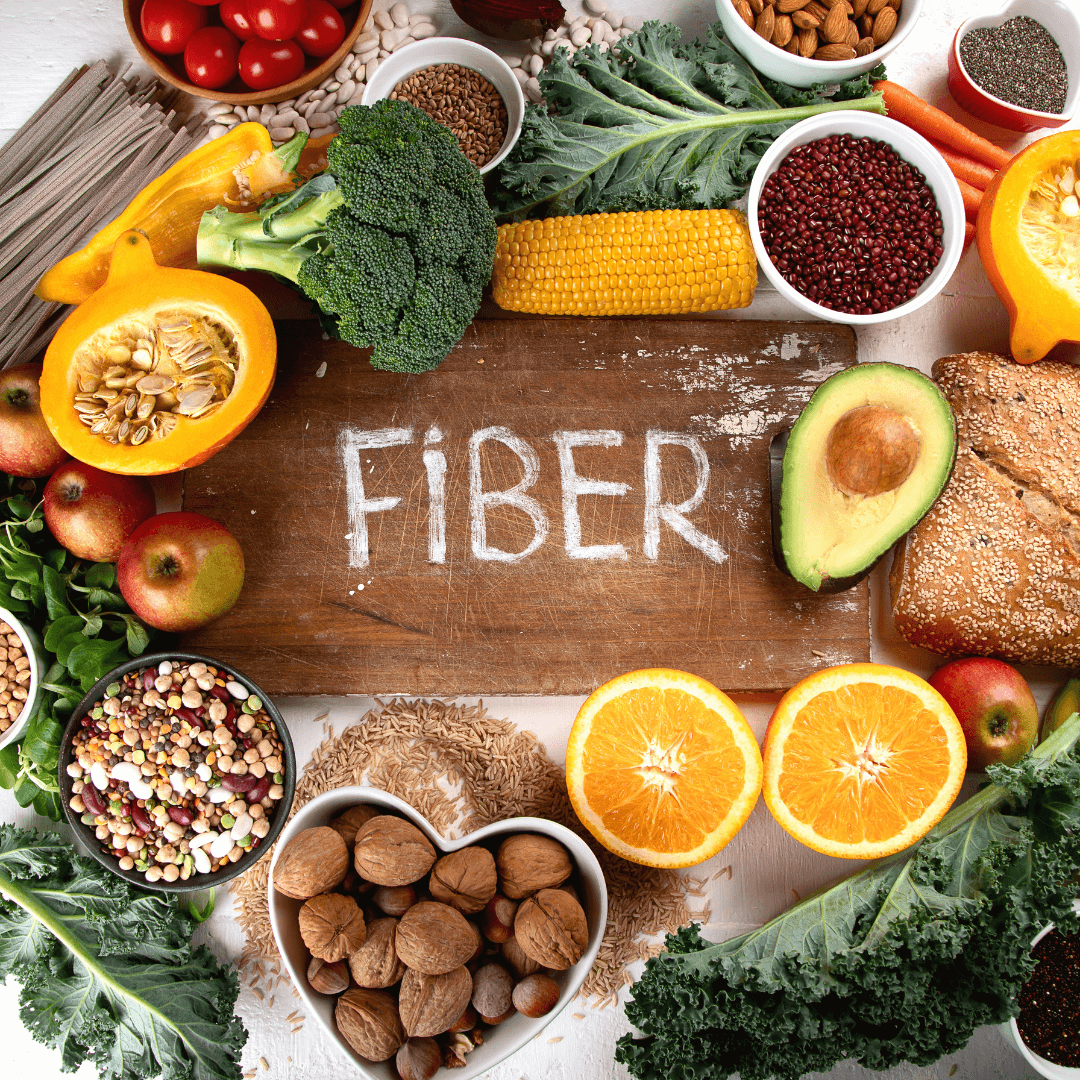
Most Americans can benefit from eating more fiber, but fiber is more than just a number on the label or can. There are actually two different types of fiber:
- Soluble Fiber: Dissolves in water and forms a gel-like substance, filling you up and easing the transition of stools through your digestive tract. Beans and peas are a great source of soluble fiber and it’s also what you’ll find in many common fiber supplements. Inulin and psyllium are both soluble fibers, for instance.
- Insoluble Fiber: Nuts, wheat bran, seeds, and whole wheat are all sources of insoluble fiber. They attract water into the stool and aid with regularity.
A healthy balanced diet contains both soluble and insoluble fiber, so make sure you get plenty of both.
To learn more, read our guide to the best sources of fiber.
Constipation Myth 5: Swallowed Gum Will Remain for 7 Years

There is an enduring myth about chewing gum that states it will remain in your system for 7 years after swallowing. Some may expand on this myth and assume that their repeat bouts of constipation are the result of gum they swallowed less than 7 years ago.
Needless to say, it’s not true.
No one really knows where this myth came from or why it’s so specific, but there are a few probable causes.
Firstly, chewing gum is indigestible, which means your body can’t digest it. Some people may have heard this fact and assumed it means the gum will stick around. When you consider how easily gum sticks to shoes and how hard it is to remove from the sidewalk, it’s an understandable assumption to make.
But “indigestible” doesn’t mean your body can’t get rid of it. It simply means that it won’t be digested like food and will pass through your body relatively untouched.
Secondly, generations of parents may have used the myth to warn kids against swallowing chewing gum.
Either way, chewing gum will not stay in your system for 7 years and it should be passed without issue. That doesn’t mean you’re free to swallow as much as you’d like though. It may cause nausea and other digestive issues, and a lot of gum could cause a blockage.
Constipation Myth 6: Prunes Work Because They Are High in Fiber

Prunes are a traditional and natural laxative. If you ask the average person why they work, they’ll probably tell you it has something to do with their high fiber content.
But while that certainly plays a role, there is something even more effective and immediate at play here.
Prunes contain a type of sugar called sorbitol. It works by drawing more water into the intestines, thus increasing the volume of the stools and making them softer and easier to pass. If you consume a large number of prunes or drink a lot of prune juice, your intestines will absorb much more water and could trigger a bowel movement within a few hours.
As with other laxatives, prunes are much more effective if you are properly hydrated, so make sure you drink plenty of water throughout the day.
Constipation Myth 7: It is Inevitable as you Age

It’s true that older people are more likely to suffer from constipation, but age itself is not the issue. Instead, it’s because the older you are, the more likely you are to suffer from the sort of underlying conditions that cause constipation. Seniors also take more medications, and many of these cause constipation.
If you age healthily—stay active, drink plenty of water, eat lots of fiber, and get regular check-ups—you can keep your digestive issues to a minimum.
Constipation Myth 8: Colonic Irrigation is the Ultimate Cure

A colonic can cure your constipation and remove excess waste from your bowels, but it won’t treat the underlying condition and so the problem might return within weeks or even days.
What’s more, regular colonics can make your bowel lazy, as you’re not removing waste in the way it should be removed. You could also be damaging the delicate microbiome that lives in your gut and keeps everything operating smoothly.
There are other issues to consider, too. Going for a colonic while you have impacted bowels or chronic constipation could damage the gut and cause long-lasting problems.
Speak with your physician first and only book a colonic if it comes via their recommendation. There are many safer and more natural ways to remove that waste and restore balance.
Constipation Myth 9: It’s Okay to Hold it in

If you feel the need to go, you should go, as holding it in will disrupt the balance and create discomfort. Just because you can stop yourself from going, doesn’t mean you should.
Try to establish a routine, whether it’s in the morning before school/work or in the evening when you return.
Constipation Myth 10: Constipation is Always Caused by Diet and Lifestyle
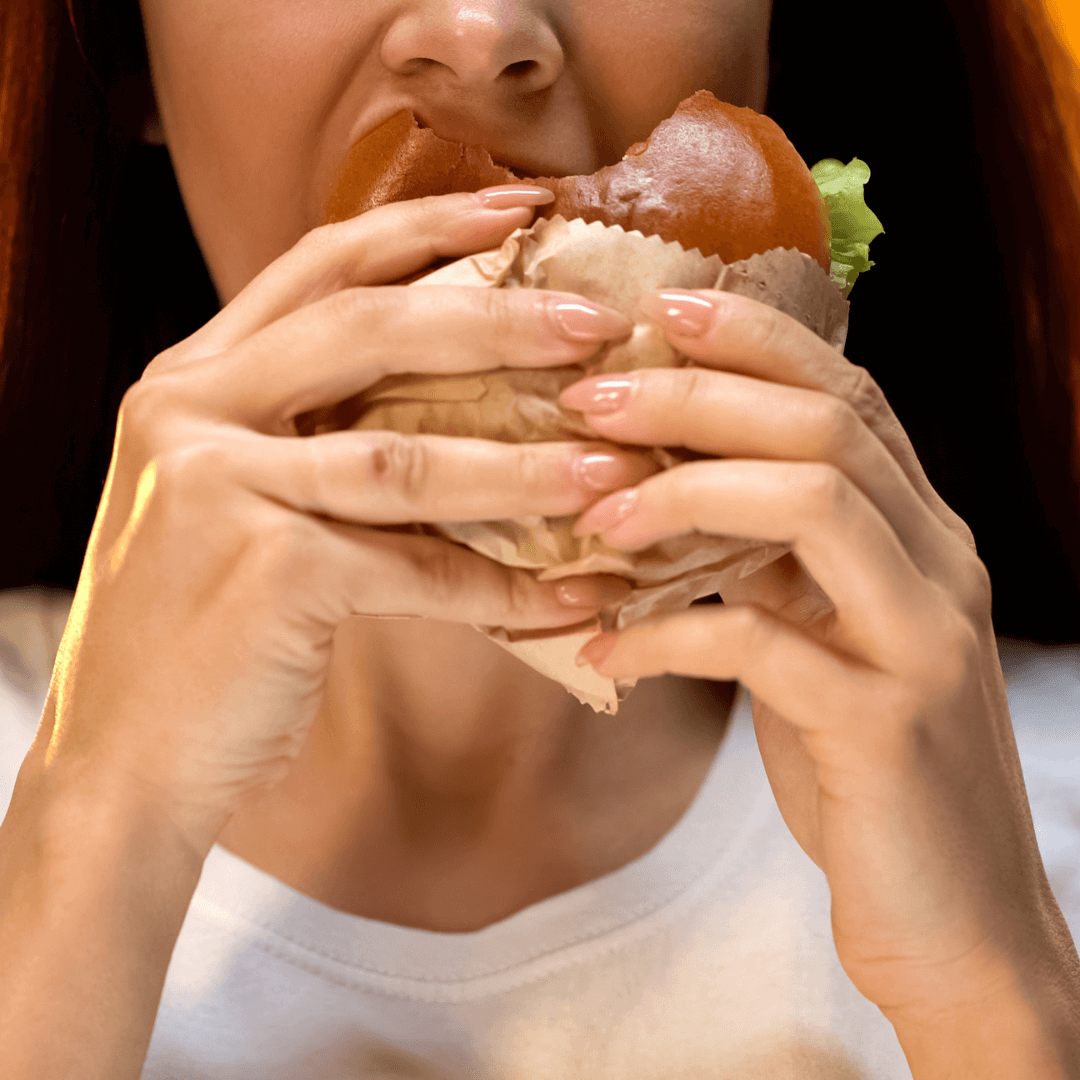
Diet and lifestyle are two of the main causes of constipation, including a lack of fiber, too much fat, not enough water, and very little exercise. But there are many others.
Numerous medications can cause constipation, and it’s also more common in some health conditions, including diabetes, irritable bowel syndrome, and muscular dystrophy, to name just a few.
Stress, anxiety, and other major emotional and psychological changes can also make you more prone to constipation.
Constipation Myth 11: Drinking Lots of Coffee Works

Coffee contains caffeine, which is a stimulant. If you typically drink lots of coffee then a cup or two in the morning could be enough to get your bowels moving. But if that’s not working, it’s unlikely that copious amounts of caffeine will have any effect. The issue could be related to hard and dry stools, in which case you need more fiber and water and not coffee.
It’s often said that coffee causes dehydration. That’s not entirely true. It is a diuretic, so it does have a dehydrating effect, but it’s mild at best.
The real issue here is that a cup of coffee contains very little liquid, and if that’s the only thing you’re drinking, your body will be deprived of fluids. So, by all means drink a cup of coffee in the morning, and if that doesn’t work, try following it with a tall glass of water.
Constipation Myth 12: All Laxatives are Addictive

It’s true that laxatives can lead to dependence, as you may reach a point where you rely on them to have a bowel movement. They can also cause health problems following excessive and chronic use. But that’s not true for all laxatives, and if your doctor has prescribed a laxative to be used every day, you should be using it every day.
If you’re concerned about dependence, consult with your physician.
Summary: Constipation Myths
Constipation doesn’t feel great. That’s a fact. It’s also not good for your health to be chronically constipated and if you are, it could indicate that you have a problem with your digestive health or that you need to make some lifestyle adjustments.
Either way, constipation is not something you can afford to ignore.
Start by eating more fiber, drinking more water, and getting more exercise. If that doesn’t remedy the issue, speak with a healthcare professional, as there may be some underlying issues.
If you need some help meeting your fiber, probiotic, and prebiotic needs, check out ColoFlax, the world’s first flaxseed fiber gummy.

